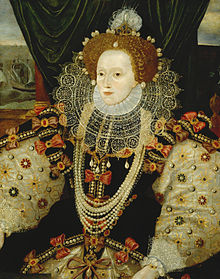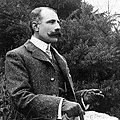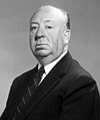Portal:England
The England portal

| |
England is a country that is part of the United Kingdom. It is located on the island of Great Britain, of which it covers about 62%, and more than 100 smaller adjacent islands. It has land borders with Scotland to the north and Wales to the west, and is otherwise surrounded by the North Sea to the east, the English Channel to the south, the Celtic Sea to the south-west, and the Irish Sea to the west. Continental Europe lies to the south-east, and Ireland to the west. At the 2021 census, the population was 56,490,048. London is both the largest city and the capital.
The area now called England was first inhabited by modern humans during the Upper Paleolithic. It takes its name from the Angles, a Germanic tribe who settled during the 5th and 6th centuries. England became a unified state in the 10th century and has had extensive cultural and legal impact on the wider world since the Age of Discovery, which began during the 15th century. The Kingdom of England, which included Wales after 1535, ceased to be a separate sovereign state on 1 May 1707, when the Acts of Union brought into effect a political union with the Kingdom of Scotland that created the Kingdom of Great Britain.
England is the origin of the English language, the English legal system (which served as the basis for the common law systems of many other countries), association football, and the Anglican branch of Christianity; its parliamentary system of government has been widely adopted by other nations. The Industrial Revolution began in 18th-century England, transforming its society into the world's first industrialised nation. England is home to the two oldest universities in the English-speaking world: the University of Oxford, founded in 1096, and the University of Cambridge, founded in 1209. Both universities are ranked among the most prestigious in the world.
England's terrain chiefly consists of low hills and plains, especially in the centre and south. Upland and mountainous terrain is mostly found in the north and west, including Dartmoor, the Lake District, the Pennines, and the Shropshire Hills. The country's capital is London, the metropolitan area of which has a population of 14.2 million as of 2021, representing the United Kingdom's largest metropolitan area. England's population of 56.3 million comprises 84% of the population of the United Kingdom, largely concentrated around London, the South East, and conurbations in the Midlands, the North West, the North East, and Yorkshire, which each developed as major industrial regions during the 19th century. (Full article...)
Eliza Acton (17 April 1799 – 13 February 1859) was an English food writer and poet who produced one of Britain's first cookery books aimed at the domestic reader, Modern Cookery for Private Families. The book introduced the now-universal practice of listing ingredients and giving suggested cooking times for each recipe. It included the first recipes in English for Brussels sprouts and for spaghetti. It also contains the first recipe for what Acton called "Christmas pudding"; the dish was normally called plum pudding, recipes for which had appeared previously, although Acton was the first to put the name and recipe together.
Acton was born in 1799 in Sussex. She was raised in Suffolk where she ran a girls' boarding school before spending time in France. On her return to England in 1826 she published a collection of poetry and released her cookery book in 1845, aimed at middle class families. Written in an engaging prose, the book was well received by reviewers. It was reprinted within the year and several editions followed until 1918, when Longman, the book's publisher, took the decision not to reprint. In 1857 Acton published The English Bread-Book for Domestic Use, a more academic and studious work than Modern Cookery. The work consisted of a history of bread-making in England, a study of European methods of baking and numerous recipes. (Full article...)
Selected article -

The Elizabethan era is the epoch in the Tudor period of the history of England during the reign of Queen Elizabeth I (1558–1603). Historians often depict it as the golden age in English history. The Roman symbol of Britannia (a female personification of Great Britain) was revived in 1572, and often thereafter, to mark the Elizabethan age as a renaissance that inspired national pride through classical ideals, international expansion, and naval triumph over Spain.
This "golden age" represented the apogee of the English Renaissance and saw the flowering of poetry, music and literature. The era is most famous for its theatre, as William Shakespeare and many others composed plays that broke free of England's past style of theatre. It was an age of exploration and expansion abroad, while back at home, the Protestant Reformation became more acceptable to the people, most certainly after the Spanish Armada was repelled. It was also the end of the period when England was a separate realm before its royal union with Scotland. (Full article...)
General images
Trespass in English law is an area of tort law broadly divided into three groups: trespass to the person, trespass to goods, and trespass to land.
Trespass to the person comes in three variants: assault, which is "to act in such a way that the claimant believes he is about to be attacked"; battery, "the intentional and direct application of force to another person"; and false imprisonment, "depriving the claimant of freedom of movement, without a lawful justification for doing so". All three require that the act be a direct and intentional act, with indirect or unintentional acts falling under the tort of negligence. Battery and assault require the claimant to establish that the defendant intended to act, while false imprisonment is a tort of strict liability. The guiding principle behind all three is based on the statement of Robert Goff, LJ, who stated in Collins v Wilcock that "any person's body is inviolate", excepting normal, day-to-day physical contact. (Full article...)
Did you know?
- ...that Lambeth, in the London Borough of Lambeth appeared in the Domesday Book of 1086?
- ...that Kate Marsden journeyed overland to Siberia to find a leprosy cure.
- ...that the Old Bailey was destroyed in the 1666 Great Fire of London, only to be rebuilt in 1674?
- ...that a Jury is only sent to cases of an indictable offence that has been sent to a Crown Court by a magistrates?
In the news

- 17 December 2024 – Murder of Sara Sharif
- English High Court judge John Cavanagh sentences Urfan Sharif and Beinash Batool to life imprisonment for the murder of Sharif's 10-year-old daughter Sara. (ABS-CBN News)
- 7 December 2024 – 2024–25 European windstorm season
- Two people are killed by falling trees in England and more than 1.5 million people experience power outages in Ireland and the United Kingdom as Storm Darragh hits the British Isles. (BBC News) (Sky News)
- 27 November 2024 –
- The City of London Corporation proposes a bill to close the 19th-century Billingsgate Fish Market in Billingsgate and Smithfield Meat Market in Smithfield, City of London, United Kingdom, by 2028. (BBC News) (AP)
- 26 November 2024 – 2021–present United Kingdom cost-of-living crisis
- Multinational car manufacturing company Stellantis announces that it will close its van-production factory in Luton, England, putting 1,100 jobs at risk, citing the UK's economic conditions and the government's zero-emission vehicle (ZEV) mandate as reasons for its closure. (The Guardian)
- 20 November 2024 – 2024 United Kingdom farmers' protests
- Deputy Prime Minister Angela Rayner dismisses concerns brought on by protests in London from United Kingdom farmers against new agricultural inheritance taxation policies as "scaremongering". (Sky News)
- 19 November 2024 – 2024 United Kingdom farmers' protests
- Thousands of British farmers protest at the Houses of Parliament in London, United Kingdom, against a new inheritance tax on land ownership that includes farms. (Al Jazeera) (BBC News)
Selected featured content
Categories
Selected quotes
| “ | Do not be misled by memories of your youth when, on the Continent, wanting to describe someone as exceptionally dull, you remarked: 'He is the type who would discuss the weather with you.' In England this is an ever-interesting, even thrilling topic, and you must be good at discussing the weather. | ” |
Related WikiProjects
England • Bedfordshire • Brighton • Cheshire • Cornwall • Derbyshire • Dorset • Greater Manchester • Hampshire • Lincolnshire • London • Merseyside • Northamptonshire • North East England • Sheffield • Surrey. Warwickshire • West Midlands • Worcestershire • Yorkshire
Topics
Things you can do

- Please visit the English Wikipedians' notice board and help to write new England-related articles, and expand and improve existing ones.
- Visit Wikipedia:WikiProject England/Assessment, and help out by assessing unrated English articles.
- Add the Project Banner to English articles around Wikipedia.
- Check for announcements and open tasks for ways to improve English related articles.
- Help nominate and select new content for the England portal.
- Requested articles: Charterhouse Lane • Renewable energy in England • Ealing Village
- Expand: Dorothy Boyd • David Troughton
Related Portals
 |
 |
 |
 |
 |
 |
 |
 |
| East Midlands | London | North East | North West | South East | South West | West Midlands | Yorkshire and the Humber |

|

|

|

|

|
| Ireland | Northern Ireland | Scotland | United Kingdom | Wales |
Associated Wikimedia
The following Wikimedia Foundation sister projects provide more on this subject:
-
Commons
Free media repository -
Wikibooks
Free textbooks and manuals -
Wikidata
Free knowledge base -
Wikinews
Free-content news -
Wikiquote
Collection of quotations -
Wikisource
Free-content library -
Wikiversity
Free learning tools -
Wikivoyage
Free travel guide -
Wiktionary
Dictionary and thesaurus








































































![Image 70The Staffordshire Hoard is the largest hoard of Anglo-Saxon gold and silver metalwork yet found[update]. It consists of almost 4,600 items and metal fragments. (from Culture of England)](http://upload.wikimedia.org/wikipedia/commons/thumb/6/60/Staffordshire_hoard_annotated.jpg/120px-Staffordshire_hoard_annotated.jpg)




























